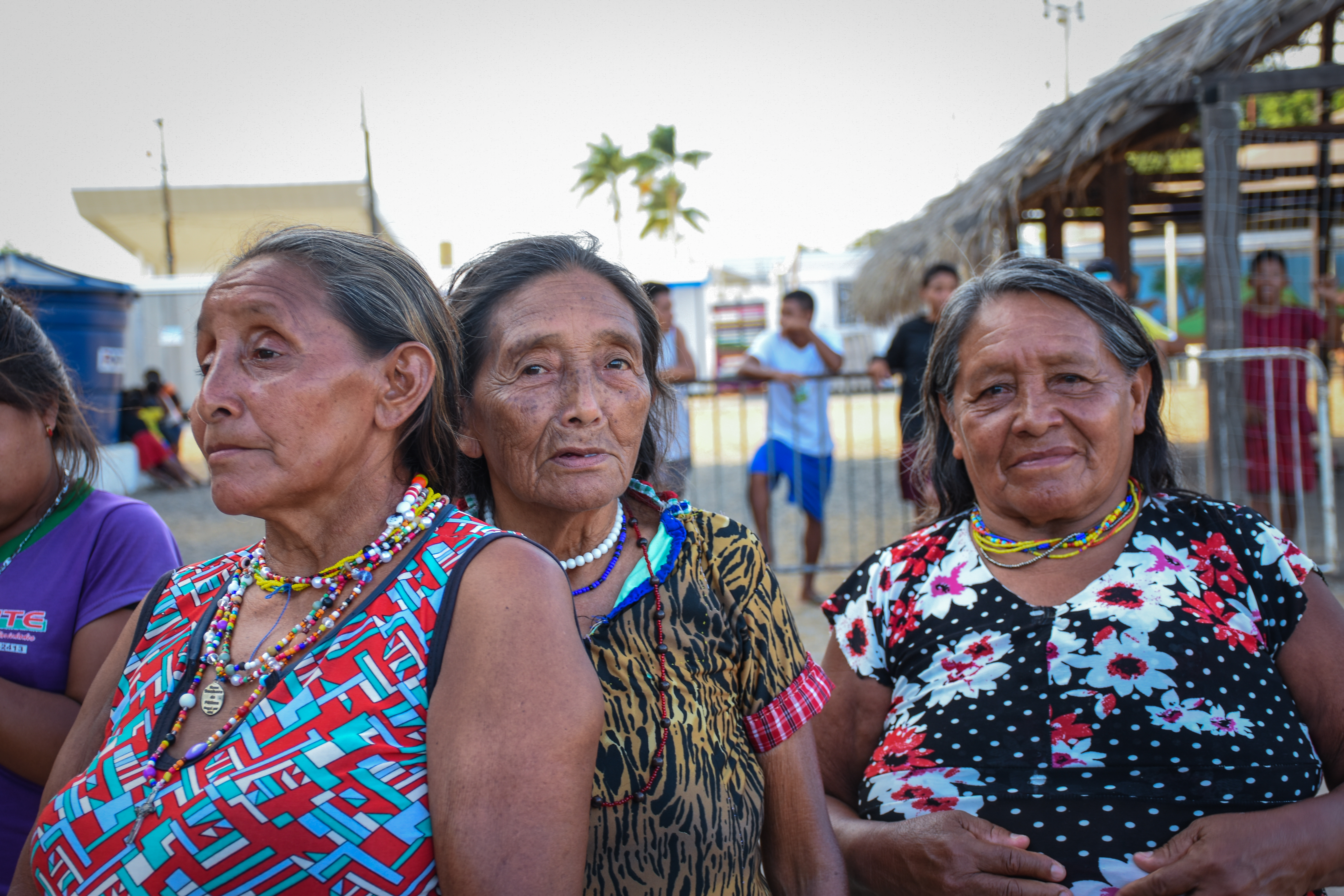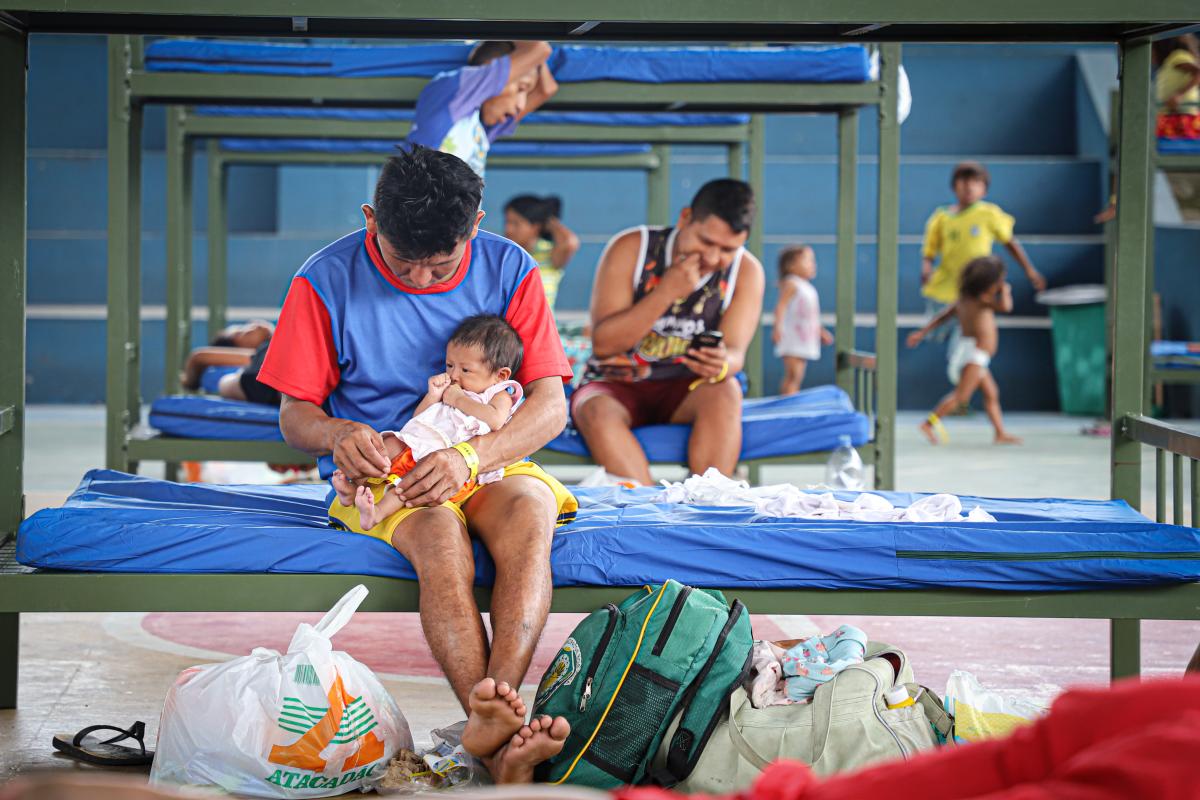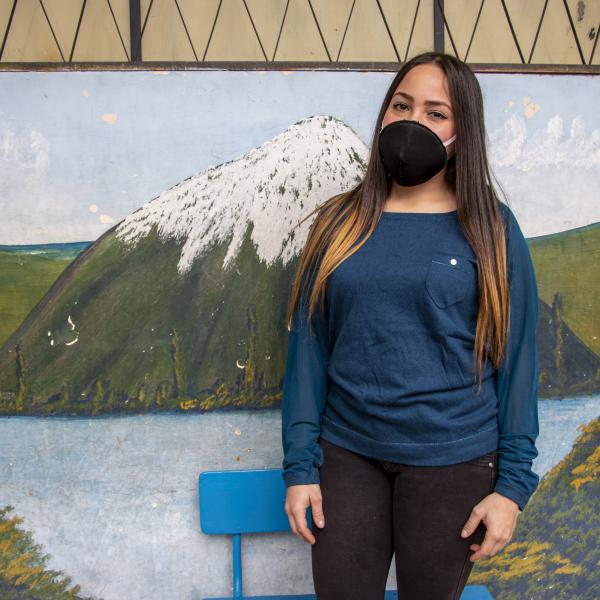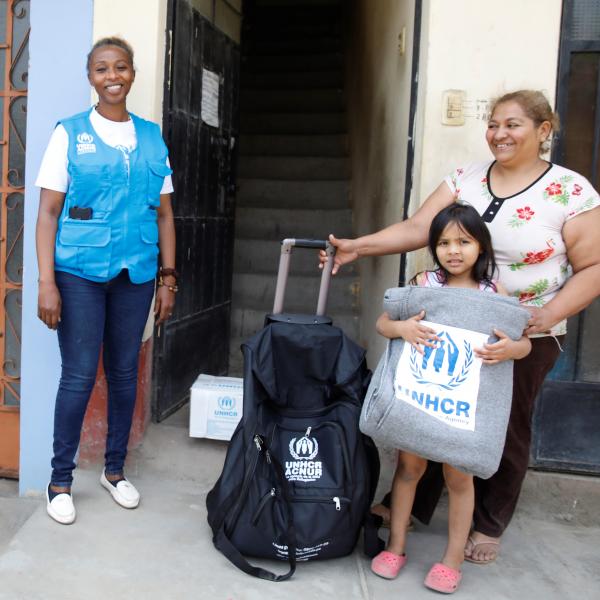
Hundreds of thousands of Venezuelans in neighbouring countries do not have any form of identification or residence permits; thus, they are unable to exercise their basic rights.
UNHCR is working with neighbouring governments to implement a comprehensive and coordinated needs-based approach to improve the care for displaced Venezuelans.
UNHCR’s action complements what governments are doing to provide emergency shelter to Venezuelans entering bordering States and major cities.
At the same time, the UN Refugee Agency is implementing measures to guarantee their protection and secure their fundamental rights.

Not only is Venezuela going through a political, social and economic crisis, it is also lacking food, medicine and essential services. As a result, it is undergoing the largest exodus in the region's recent history.
Venezuelans arriving in other countries with no form of identification, which is the case for most, are extremely vulnerable to sexual and labour exploitation, human trafficking, violence, discrimination and xenophobia.
Paola, 24, and her one-year-old daughter, have been living in a UNHCR-supported shelter in Ambato for the past four months.


UNHCR works to improve measures to meet refugees’ immediate basic needs upon arrival, and fight discrimination and xenophobia in host countries. It also aims to strengthen refugees’ social and economic integration to ensure a smooth transition into the host communities.
For example, UNHCR has strengthened its presence along the borders to limit risks, such as human trafficking and exploitation, and to identify people in need of special protection and services, such as unaccompanied children and pregnant women.
UNHCR also provides legal assistance and advice to new arrivals and distributes clean water and hygiene kits to children and women in border areas.
To date, UNHCR has opened 13 temporary housing structures in Boa Vista and Pacaraima, sheltering 6,000 Venezuelans.

In order to support host countries, we must urgently intensify humanitarian assistance and social and economic integration. Helping them will ensure they can continue welcoming refugees and migrants in a safe and caring environment.
In 2022, only about half of the 337 million francs to respond to the most urgent needs in the 16 host countries affected by the crisis were raised.
The situation is critical, we must help.